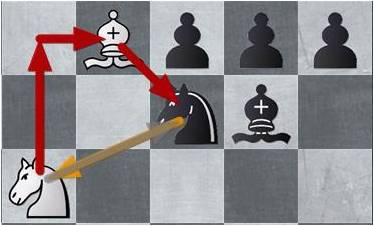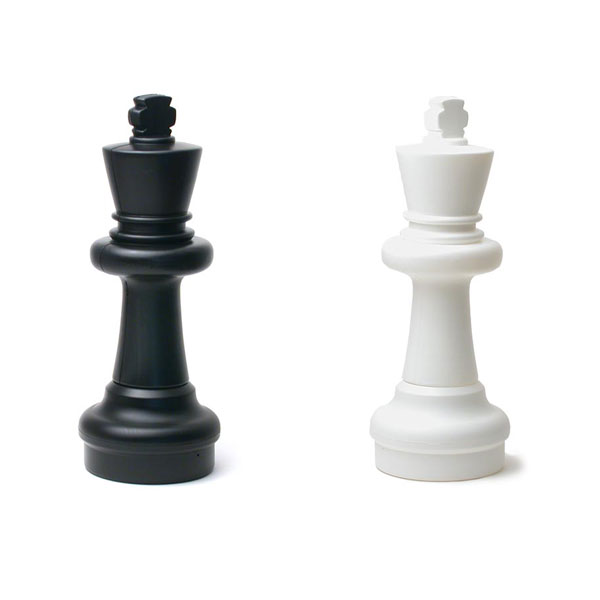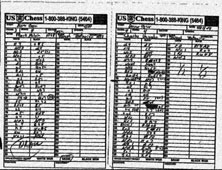Total Chess: Check, Checkmate, Stalemate
There are three ways to attack the king. It is very important to know all three ways, and the differences between them.
1) Check: When the king is under attack by one of the opponent’s pieces, the king is in check. When your king is in check, you must get out of check. You are never allowed to make a move that leaves your king in check. You are also never allowed to make a move that puts your king in check. It is against the rules. This also means that the king can never be captured, because it can never be left under attack.
When you put the other player’s king in check, you say, “check.” Do you have to say, “check?” No, you do not have to say, “check,” but it is polite to say, “check.” It is like when somebody sneezes. You do not have to say, “bless you,” but it is polite to say, “bless you.” Whether you say, “bless you,” or not, the person still sneezed. And whether you say, “check,” or not, the king is still in check, and the king must get out of check. Chess notation for check is the plus sign ‘+’.
There are three ways to get out of check. You may or may not be able to use all three ways, depending on the position. Sometimes you have all three choices, sometimes you have two choices, and sometimes you have only one choice. Here are the three ways to get out of check.
1. Move: Move the king to a square where it is not in check.
2. Block: Put a piece between the king and the piece giving check.
3. Capture: Capture the piece giving check.
What happens if you do not get out of check? Can the opponent capture your king? No! You can never capture the king. If you make a move that leaves your king in check, or that puts your king in check, you must take back your move and make a different move. The opponent should tell you that you have made an illegal move, and you must take it back and make another move. You can also never move a king next to a king, because that would put both of the kings in check. They are like the ends of two magnets that can never be brought together.
What if neither of you see that your king is in check, or that the opponent’s king is in check? Then as soon as one of you sees that their king is in check, they must take back their last move and make a different move. You must get out of check.
2) Checkmate: When you are in check, and there is no way to get out of check, then it is checkmate. You cannot move, block or capture to get out of check. You lose the game. If you put the opponent in checkmate, then you win the game. The game ends with checkmate. You never actually capture the king. The game is over when it is certain that the king could be captured next move. Make sure both players agree that it is checkmate before you reset the pieces. Chess notation for checkmate is the pound or number sign ‘#’ (a double plus sign), or two plus signs ‘++’.
3) Stalemate: When your king is not in check, and any move you make would put your king in check, then it is stalemate. It is your turn to move so you must move, but you cannot move because you cannot put your king in check. The game ends right there. Neither player wins because neither player got checkmate. Stalemate is not a win or a loss; it is a draw, a tie game. Make sure both players agree that it is stalemate before you reset the pieces. Chess notation for stalemate is the dollar sign ‘$’ (the letter ‘S’ with a line through it).
***
From the book, “TOTAL CHESS: Learn, Teach and Play the Easy 1-2-3 Way,” by John Herron
TOTAL CHESS is your complete guide to chess. It covers everything: rules, strategies, tactics and checkmates.
Everything in chess comes in threes. Three simple strategies are presented for the opening, midgame, endgame, etc. Each lesson is brief and covers one concept in simple language that everyone can read and understand.











Comments: